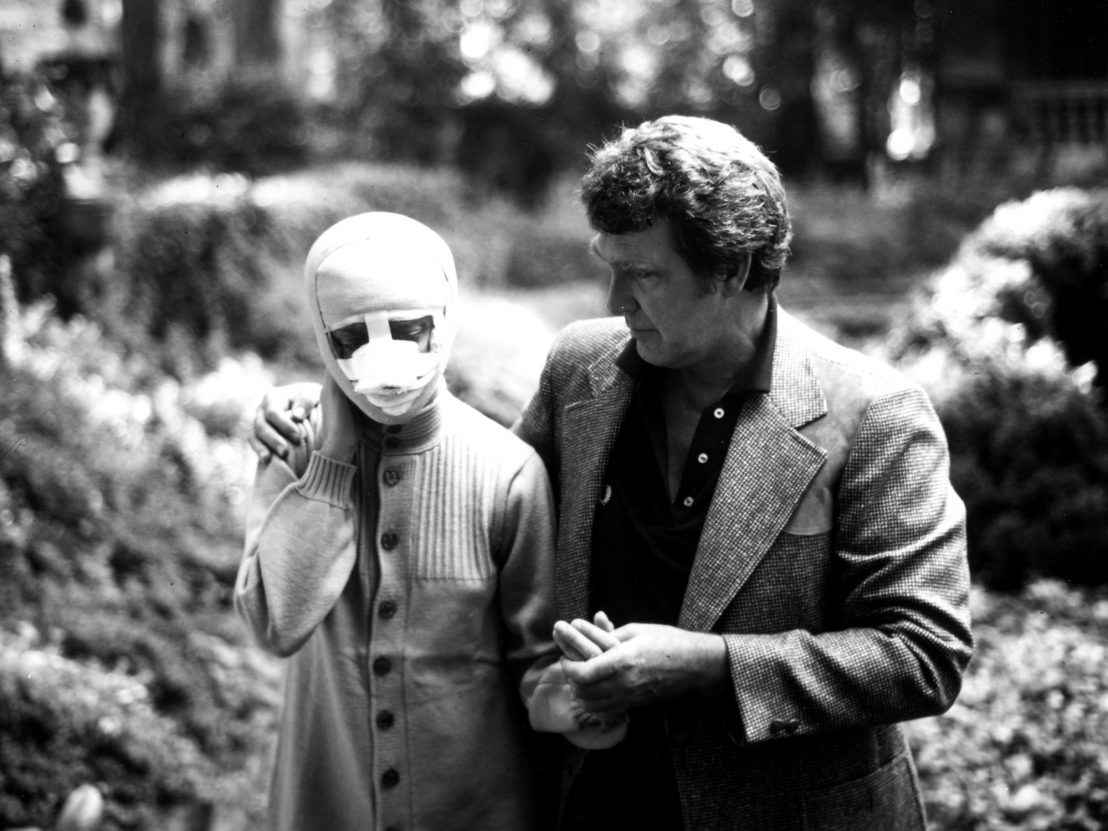
“I do the devil’s work, I change the faces that God intended, I cater to man’s vanity and to his lust,” plastic surgeon Dr Phillip Reynolds (a sublime Robert Lansing) says drily in John Grissmer’s Scalpel, explaining why he was left out of the will of his late, superrich father-in-law. “I mean it, he thought I was some kind of Frankenstein making monsters, only at the county hospital. And when poor Jennifer drowned, I think he blamed me for that too.”
Perhaps, though, the deceased was not such a poor judge of character after all: for Phillip, a smooth, arrogant sociopath, had indeed (as a flashback reveals) let his wife Jennifer drown, and had murdered in cold blood the boyfriend of his own daughter Heather (Judith Chapman) after seeing the young couple having sex. Heather, who witnessed her father’s misdeed, disappeared shortly after – which is a problem, as she is the one who has inherited her grandfather’s $5 million.
Never one to give up easily, Phillip recruits a young Jane Doe whom he found in an alleyway with her face horrifically pulped, and sets about surgically reconstructing her to resemble his daughter, promising to split with her the inheritance that she will claim as Heather. Only Phillip’s interests in Heather were not altogether fatherly, and now this Jane Doe (also played by Chapman) is a perfect surrogate not just for his legacy-hunting schemes, but also for his taboo fantasies.
“Identify!” Phillip keeps barking at Jane, insisting that she learn to recognise the faces of all ‘her’ relatives. Scalpel belongs to a strain of films that explore the connections between plastic surgery, personal identity and mythic transformation. The grandaddy of these is Georges Franju’s jauntily dark modern fairy tale Eyes Without a Face, followed closely by Hiroshi Teshigahara’s The Face of Another, Scott McGehee and David Siegel’s Suture, Kim Ki-duk’s Time and Pedro Almodóvar’s The Skin I Live In. One might even include less cerebral offerings like Jesús Franco’s Franju remake Faceless and John Woo’s Face/Off.
In different ways, all of these show the malleability of the human face before the surgeon’s knife, and the profound effect that such changes can make to the patient’s place in the world and in society. In Jane’s case, she can go from being a beat-up stripper to a privileged heiress, and also find unexpected love with ‘daddy’ – but her double is circling like a ghost, and returns to confront once more this man (for whom “there’s never enough”) with a shifting sense of what he wants.
“You can pick the colour, but I’m awfully fond of yellow,” says Jane when the executor of the will (Tad Currie) asks in what kind of suitcase she would like her millions. Cinematographer Edward Lachman (The Virgin Suicides, Carol) is similarly fond of yellow, tinging everything in its sickly hue. Both set and shot around Atlanta, Georgia, Scalpel is a Southern gothic melodrama whose bizarre love triangle drips with psychosexual subtexts and madness. Phillip is a monster, but a strangely witty and personable one, with an infectious line in unrestrained laughter.
Meanwhile, as Jane and Heather start playing a very adult version of The Parent Trap, Grissmer generates great tension from our uncertainty as to whether Phillip will eliminate one of them, which one it will be, and even if he (and we) will be able to tell the difference between them. After all, identity here is up for grabs. Grissmer would go on a decade later to make Blood Rage – a slasher which also pivoted around twins and doubles.
Scalpel is released by Arrow Video on Blu-ray, in a brand new 2K restoration from original film elements, on 19 February.
Published 19 Feb 2018

By Anton Bitel
Kill, Baby... Kill! contains one of cinema’s earliest evil children.

Pedro Almodóvar’s latest is an intoxicating elixir of dark fantasy, sick obsession and all-consuming desire.

By Anton Bitel
A 4K restoration of The Bird with the Crystal Plumage is being released.